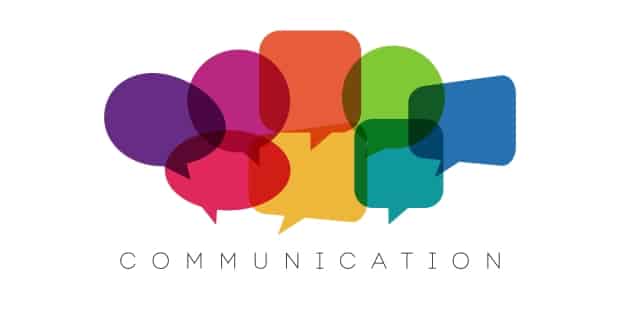Job Seeking In A COVID – Affected World
Job seeking can be a stressful and time-consuming process. In addition, it can be challenging to apply for jobs based on competition and required experience.
When you’re unemployed, it’s essential to find a reliable source of income. This can be especially true if you’re raising a family. Unfortunately, when you’re in the middle of job searching, the task can seem overwhelming.
On top of that, COVID-19 changed the world. The pandemic changed the way we look at job searching and having a career. As a result, more people have started working from home or embracing hybrid office practices.
Some lost their jobs during the pandemic, leaving them unemployed without any support. These obstacles have made it even harder to find a job.
The good news is jobs are continually changing with the world’s response to COVID-19. As a result, the way we used to job hunt may not be the same five years from now. Employers are already beginning to take different approaches to work environments.
With more possibilities for flexibility and accommodations, it may be the perfect time to look for a job. Here are a few strategies to help you make the best of job seeking in a COVID-affected world.
How has COVID Affected Hiring?
For one thing, employers may not be hiring as often. This depends on the career and position you’re applying for. For example, it may be easier to apply for jobs in management or retail.
But, it may be more challenging to find jobs in other industries. There may be more job openings for remote work, which can be a convenient option for stay-at-home parents or busy households.
It all depends on preference, strategy, and approach. It may be a great time to increase skills in other areas like data entry or content writing.
If you stay connected and network online, you’re more likely to capture the attention of employers. Jobs may look different from before, but it can also be a great way to learn what works for you.
How can I get Hired?
When job searching in a post-COVID world, it’s crucial to stay aware of changes to hiring practices. Depending on your skills, possible degree, and living situation, there are different strategies you can follow.
Continue making connections online, researching your prospective employers, and improving your skills. Here are some tips to help you get started.
Create a Goal
The first thing you want to do is create a career goal. Depending on your degree or the career path you want to pursue, job hunting can range in difficulty.
For example, a college graduate will have less experience than a seasoned professional. As a result, some employers may be looking for more prepared workers, while others may be more open to entry-level training applicants.
From there, begin to narrow down your choices and select the career you want to work with. Then, start collecting recommendations from friends, family, and former co-workers or professors.
Try to follow these goals step by step. Avoid going after an overly ambitious objective to prevent disappointment. Instead, start small and work your way up from there.
Customize Your Resume and Cover Letter
You may have heard this a few times before, but it’s honestly the best way to get an employer’s attention. The best way to showcase your skills is to tailor each resume and cover letter to each employer.
You may have resume-worthy accomplishments, but some of these may not apply to the job you’re applying for. So instead, focus on the skills that your prospective employer is looking for.
For example, an editing position will be more interested in achievements related to writing or proofreading than math skills. Vice versa, a computer programming position may call for more arithmetic expertise.
Use simple keywords so that the employer can know you’re the right fit by a glance. Always have a friend, family member, or resume professional look it over before submitting your application.
Be Intentional and Ready
Be prepared to search for jobs. It can feel like a career in itself when it comes to scheduling and keeping track of applications.
Figure out times and days when you’ll focus on job searching, applications, and document organization. For example, if you haven’t updated or improved your resume, your job search time would be a perfect time to do that.
Also, if you haven’t created a list of references or need to follow up with your contacts, make sure you do that ahead of time. Always include at least three references for any position you apply for.
If you’d like to take a step further, organize all your applications and prospective positions into one spreadsheet. Update your professional profiles and add a separate email for all your career-related messages.
Get to Know the Company You’re Applying for
Before applying for a position, take some time to research the company or employer. It’s never good to end up in a hostile work environment, even if it’s related to your career.
You want to stay healthy physically and mentally. If your work negatively affects either of these, it’s time to quit or move on to another opportunity.
Take some time to glance at company review sites like Glassdoor. These allow you to see reviews made by former or current employees. This can give you an idea of what working for the company would look like.
Researching prospective companies can also give you something to include in your cover letter or resume. From there, you can decide if the culture, salary, or benefits feel like the right fit for you.
Get Creative
Instead of relying on Google searches and online platforms, think of every option you have. This can look like job fairs or personal interactions with recruiters.
Depending on the state of the world, virtual job fairs or events may be a possible alternative to in-person interaction. Don’t restrict yourself to one particular area. Think outside of the box and make connections in unusual ways.
Meet with a career counselor, attend employment fairs of all kinds, and use social media to your advantage. Don’t be afraid to reach out to employers, even if you think you may be underqualified.
They may need your skills. You need to show that you’re willing to learn. When creating resumes, cover letters, or CVs, think of creative ways to present yourself to employers.
Create a Career Profile
To improve your visibility, consider developing a career profile. This can look like an online career source like LinkedIn or a personal portfolio. This may even include a personal website designated for career-related information.
A professional career profile will show employers that you’re willing to take extra steps to perform well and achieve great things. Depending on your career path, this can also allow employers to view past work or field experience.
Many employers use tools like LinkedIn to find employees that match the skills they want. By updating your profile regularly and including links to other information, you improve your chances of being recruited. When working on your employment profile, focus on career-related achievements.
Organize your Applications
When it comes to organization, everyone is different. For some people, it comes naturally. For others, It may be a learning experience.
No matter where you are, it’s important to find a method that works best for you. For many, this looks like a spreadsheet organizing dates, documents, and interviews.
Even so, this may not work for everyone. Some people prefer an old-fashioned way of organizing their job search. This could look like a notebook planner or wall calendar.
It could also look like a digital scheduling tool that keeps track of your important dates and information. Whatever your preference may be, make sure to stay on top of it.
Be Bold
Don’t be discouraged if your job search hasn’t been successful. Depending on your age and work experience, this can be especially difficult.
Don’t give up and keep searching for companies that feel right to you. Don’t restrict yourself to online applications or platforms. Instead, take a bold step of getting your name out there.
Don’t let a few potentials under qualifications hold you back if you notice a job description that stands out to you. Apply for the position anyway and see how your employer feels about teaching you new skills.
They may be impressed with your willingness to improve and interested in the skills you already have. However, an even more significant courageous step could include personally contacting a company you’re interested in. Even if they don’t appear to be hiring, you could get the attention of an internal recruiter or request an informational interview.
Take Advantage of your Connections
Networking is an essential part of the job search process. You’re more likely to get new job opportunities by using the contacts that you already have.
By interacting with people you know and the career experiences they’ve had, you get an idea of what it may be like. This can even include people at your current job or previous employers.
Make connections on career resource platforms like LinkedIn. Don’t hesitate to reach out to companies you’re interested in. Also, don’t be afraid to ask your contacts to help you with the process.
Ask them to refer you or write a letter of recommendation. An employer is very likely to hire someone who’s highly recommended.
Prepare for Interviews
You may think you’re prepared for an interview, but employers can surprise you. Depending on the career path, your interview may look different than a typical question-answer session. Present yourself confidently without underestimating the interviewer. Be aware, prepared, and ready to be interviewed.
Always arrive on time for the interview. Ask a friend to give you a mock interview with potential questions. Allow them to provide you with feedback based on what they observe.
Also, as much as it’s essential to prepare for the interview, always come ready with your questions. You’re there to learn about the company as much as they’re learning about you as an employee.
Follow-Up After Interviews
Don’t get disappointed if you don’t hear an immediate answer following your interview. It can take time for employers to decide on their new team members.
Instead, send a thank you note immediately after the interview is finished. This can be as simple as a thank-you email expressing your excitement about the position.
If you don’t hear from the company a week after the interview, politely follow up with them by phone or email. Emphasize enthusiasm and interest in the job.
As you wait for them to respond, continue applying for other positions. It could be a delayed hiring decision, but it could also be an opportunity to keep moving forward with the job-seeking process.
Improve and Develop your Skills
Improving your skills may be especially important if you’re a college graduate or entering a new career field. Ask for feedback from previous interviewees and employers. Even some entry-level positions may require more experience in a specific skill area.
This may be discouraging, but it’s important not to give up. Instead, take it as an opportunity to learn and grow. To expand your knowledge, apply for an internship or volunteer for something related to your career.
Attend workshops, online courses, or conferences focusing on specific career opportunities. Update your resume the more that you complete these achievements.
Take Care of Yourself
Above all things, take care of yourself. Job seeking can take longer than expected and be a very stressful experience. When you don’t have a consistent income while finding a career that wants your skills, it can feel very overwhelming.
You may experience a lot of feelings of discouragement, anxiety, or disappointment. These are all normal and valid emotions. However, you can turn a job loss into an opportunity for success.
Try your best to remain optimistic. Take feedback from friends, family, and former employers. This can help you improve skill areas that could help you find a job.
Focus on your mental health by practicing self-care. Use coping mechanisms during or after interviews if you live with depression or anxiety. You will eventually get a job, and it’s all going to be okay.










